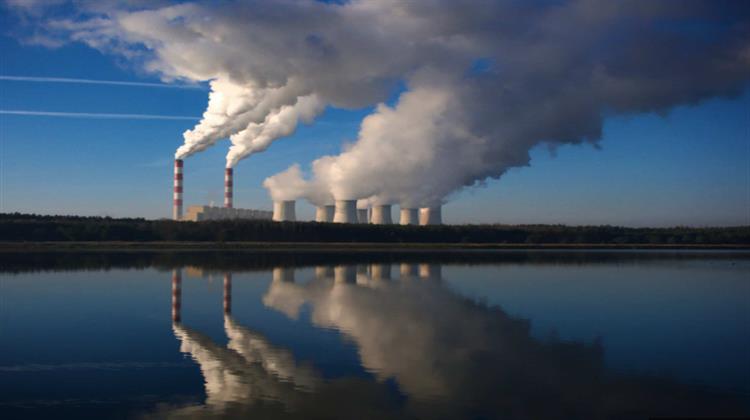The Transition of European Carbon-Dependent Regions to Nuclear Technology: Can Greece Seize the Opportunity?"

Western Macedonia can become another European model of energy transition. Rather than evolving into a “monoculture” of solar parks, the region has the potential to showcase a balanced model where industrial resilience and social justice go hand in hand. Diversifying the energy mix by integrating advanced nuclear technologies, specifically Small Modular Reactors (SMRs), is essential. This approach offers a chance to restore Western Macedonia’s role, this time on sustainable foundations.
Although renewables are promoted as cost-effective and scalable, they do not provide stable 24-hour electricity, nor do they guarantee energy security or the preservation of industrial employment. Beyond the construction phase, renewable projects offer limited long-term value to local economies. For instance, the personnel required to operate a solar park is minimal compared to the demands of conventional energy production or mining.
Greece’s electricity system has long faced a critical challenge: balancing intermittent solar generation with expensive backup units powered by imported natural gas. In Western Macedonia, this transition has led to a landscape dominated by scattered installations, disconnected from the industrial ecosystem that once supported the local economy. The region risks to become a passive energy zone rather than an active industrial hub.
The revised EU green taxonomy and the U.S.-led Project Phoenix have opened a new path for SMRs in Southeastern Europe. With nuclear energy now officially classified as a “green” activity under EU taxonomy, projects once deemed politically unthinkable are gaining momentum and attracting investment.
Launched in 2023 by the United States, Project Phoenix is designed to support countries transitioning from coal-fired power plants to SMR-based energy systems with low or zero carbon emissions. Several EU member states—including Poland, Romania, and the Czech Republic—have already joined the initiative, signaling a regional shift toward advanced nuclear solutions. Finland, for example, is repurposing a decommissioned coal plant in Helsinki to host the world’s first SMR-based district heating project.
Greece remains absent from most regional nuclear energy discussions. In contrast, North Macedonia, Slovenia, Bulgaria, Romania, and Serbia are actively exploring SMR technology in collaboration with the U.S. or through initiatives like Project Phoenix. The European Industrial Alliance for SMRs has selected nine flagship projects for development, including initiatives from EDF, Rolls-Royce, and NuScale—none of which involve Greece or Western Macedonia.
Poland, despite its heavy reliance on coal and lack of nuclear experience, is entering the SMR era with strong support from the U.S. and EU. Through Project Phoenix, the country is transitioning from fossil fuels to clean solutions, prioritizing retraining and retention of workers affected by the shift. Poland’s example proves that the absence of a nuclear legacy is not a barrier to participating in the future of advanced nuclear technology. Finland’s decision to repurpose a retired coal plant for SMR-based district heating highlights the flexibility of this technology.
In Western Macedonia, where district heating infrastructure from former lignite plants remains intact, a similar opportunity exists. The region is uniquely positioned to leverage SMRs not only for cleaner electricity generation but also for integrated heating solutions and reviving its industrial role in a sustainable way aligned with the future energy mix. This opportunity is strategic, as it ties into post-lignite revitalization, industrial reintegration, and regional GDP recovery—potentially positioning Greece as a late but decisive player in Europe’s SMR landscape.
Strategic pillars for Western Macedonia
Nuclear energy is no longer synonymous with massive gigawatt-scale installations. Small Modular Reactors (SMRs) are modular, flexible, and suitable for integration into urban, industrial, and regional environments—precisely the kind that define Western Macedonia, with its energy legacy and existing infrastructure. Let’s not forget that the region’s Gross Domestic Product fell from €4.4 billion in 2012 to €3.1 billion in 2019, and remains stagnant at €3.1–3.2 billion, reflecting the decline of energy-related activity. Adopting modular nuclear technology offers a pathway to reposition Western Macedonia as an energy engine and a hub of clean-tech innovation, built on three strategic pillars:
Continuous Baseload Power for Grid Stability
Unlike intermittent renewables, SMRs provide steady, controllable electricity generation. This ensures grid reliability, supports industrial activity, and reduces dependence on costly natural gas backup units. SMRs complement investments in renewables, enabling a balanced and resilient energy mix.
Social Transition Through High-Skill, Long-Term Employment
Unlike solar installations, which require minimal operational staff, SMRs demand a permanent, technically skilled workforce, supporting a Just Transition for former lignite workers and revitalizing local employment. The nuclear sector offers professional pathways in engineering, safety, operations, and research, reinforcing the region’s human capital.
Industrial Integration and Economic Revitalization
SMRs can replicate and enhance the industrial services once provided by coal plants:
District heating for urban centers
Power supply for data centers and digital infrastructure
Process heat for synthetic fuels and Direct Air Capture (DAC) technologies
Preliminary roadmap
Exploration (2025–2030)
Feasibility studies for converting lignite plants to SMRs in Ptolemaida
Pilot workforce retraining programs
Integration of SMRs into Greece’s National Energy and Climate Plan
Demonstration (2030–2035)
Development of the first SMR unit with integrated district heating
Co-financed by the Just Transition Fund and private investors under EU Taxonomy
Expansion (2035–2040)
Scaling up SMRs
Integration of data centers and advanced industrial applications
"ENERGIA.gr - Articles / Analyses- September 30, 2025" - Yannis Bassias & George Papachristou